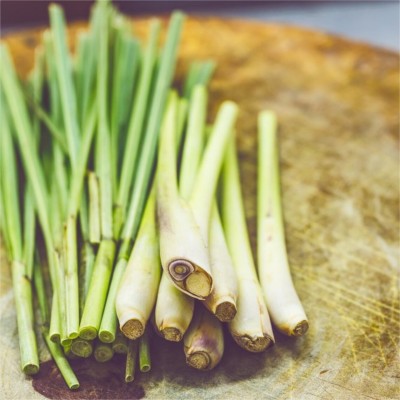XYGEN Cymbopogon Citratus | Herb Lemon Grass Seed(100 per packet)
Quick Overview
Product Price Comparison
About this itemWhere to grow: Balcony or terrace gardenSowing season: Spring (The best time is October to November)Sowing method: Direct planting or SeedlingSeeds Sowing depth ŌĆō 1/8 inchesGermination temperature: 10-24┬░CGermination Time: 10-15 days from sowingHarvesting: 60 to 70 days from plantingWhat size grow bag is best for Lemon Grass?12 x 12 Inch (W*H)15 x 12 Inch (W*H)24 x 12 Inch (W*H)3F X 2F X 1F Rectangle Grow Bag5F X 1F X 1F Rectangle Grow Bag3F X 3F X 1F Rectangle Grow BagLemon Grass Growing Season In India Lemon grass thrives in warm and hot climates and most gardeners plant it in the spring after the cold climate ends. Sow lemon grass seeds in the month of October to November. You can grow lemon grass indoors at any time throughout the season, but the plant should receive adequate sunlight. How To Grow Lemongrass In Container You can sow lemon grass seeds directly in large pots or by transplanting method, it grows well in both ways. To sow lemon grass seeds, you need a large pot at least 12 inches deep and 12-24 inches wide with proper drainage holes. Lemongrass seeds germinate best at a temperature between 10-24┬░C, although they can germinate at temperatures up to 30┬░C.Lemon Grass Seeds Sowing Method Take a pot or grow bag, fill them with soil and add organic fertilizer. Sprinkle some lemongrass seeds over the soil, and cover the seeds with a very light layer of soil, remembering that lemongrass seeds are very thin and tiny so donŌĆÖt put a thick layer of soil over the seeds. Water the soil gently and keep the soil moist and place the pot in a sunny spot as lemon grass seeds need light to germinate. Lemon grass seeds germinate in about 10-15 days, they can germinate early or late depending on growing conditions.If you have grown lemon grass in a seedling tray, you need to transplant them into larger pots after the seeds have germinated and when the seedlings are a few inches tall. Lemon grass should be planted in a large pot about 10-12 inches apart. For better plant growth, add organic manure to the soil, give proper water to the lemon grass plant and maintain moisture in the soil. Fertilizer For Lemon Grass Apply nitrogen-rich fertilizer for better growth of lemon grass plants. You can also add slow-release fertilizer during the growing season.Lemongrass Plants Care TipsSoil ŌĆō Use rich, loamy, and moist soil for planting lemon grass.Water ŌĆō Lemongrass likes moist soil to thrive and 1 inch of water per week is sufficient. DonŌĆÖt overwater and retain moisture in the soil to keep the plant healthy.Sunlight ŌĆō Lemongrass plants require at least 6 hours of direct sunlight per day and they do not grow well in shaded areas.Temperature ŌĆō The ideal lemon grass growing temperature is 10ŌĆō33┬░C. Lemongrass is frost sensitive and it cannot tolerate temperatures below 4┬░C. Common pests and diseases ŌĆō Lemongrass plants do not have any serious problems, but rust disease commonly infects the plant, caused by a group of fungi. This fungal disease is caused by wetting of lemongrass leaves, so avoid over-watering.Mulching ŌĆō Mulching is a good option to retain soil moisture and protect the lemongrass plant from the cold climate, for mulching add 2-3 inches of dry leaves, straw, grass, etc. to the soil. You can also keep your lemon grass pots indoors in winter.Harvesting Lemongrass Within 60-70 days after planting, you can harvest lemongrass.When the lemongrass stalks are about half an inch thick and 12 inches long, you can cut them.Cut the stems off at their base, or you can pull them off.You can also harvest lemongrass leaves at any stage of the plant.Lemongrass Special FeaturesCommon name ŌĆō Barbed wire grass, Cochin grass, Malabar grass, fever grassScientific name ŌĆō CymbopogonHeight ŌĆō 3 to 5 feetLevel of growing ŌĆō Easy


